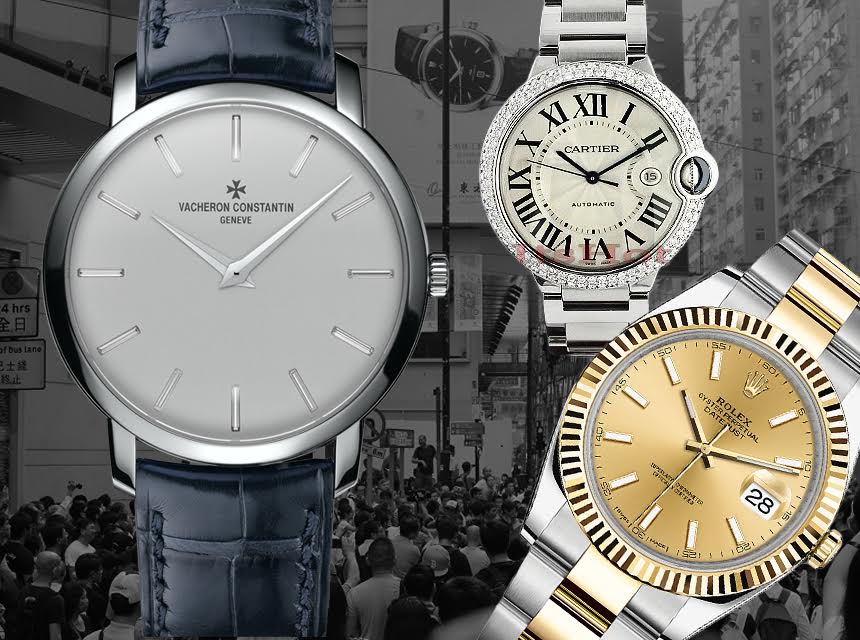
During a recent trip to Hong Kong, something interesting dawned upon me about what is probably very likely to happen in the watch world sometime soon. That thing I’m talking about is a massive explosion of timepieces flowing into the pre-owned watch market in China. Imagine almost a decade’s worth of luxury watches being bought and gifted around like crazy among millions upon millions of people in mainland China – and often originally purchased in Hong Kong – suddenly being put on the second-hand market.
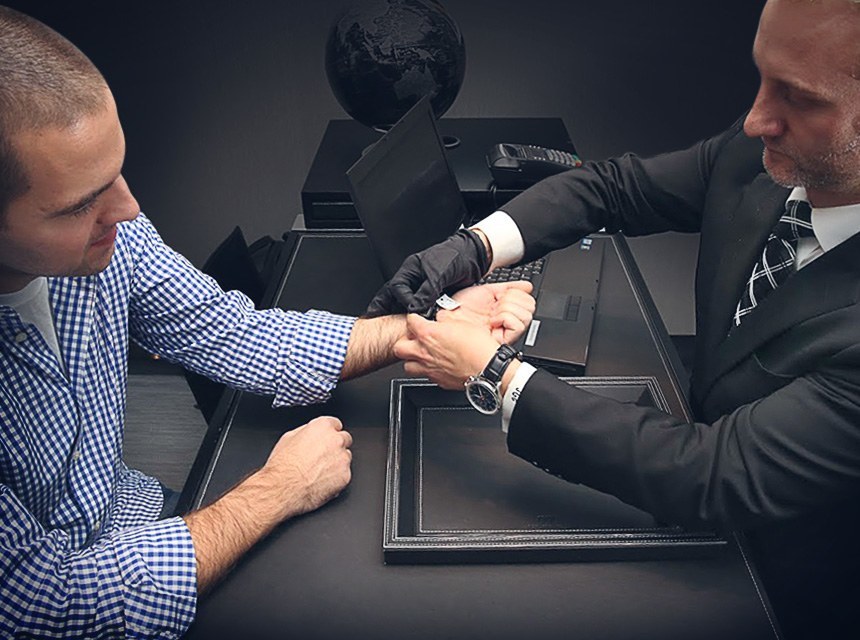
Over in America, our mentality toward buying watches is notably different than in Hong Kong or China. Colleague Su Jia Xian writes on the importance of the Chinese to the luxury watch market here. I love this part of covering the watch industry – namely regional consumer behavior – because it allows me to understand people around the world better through the context of luxury watch purchasing habits. I’ll just throw a few things out there about American and Chinese watch buyer differences.
From my understanding, watch shoppers in Hong Kong for the most part dislike the idea of getting something used and do not prefer pre-owned versus new. In fact, I get the impression that some people there would prefer a new fake watch versus a used older “authentic” model. That might be an overstatement, but it is generally not the case that pre-owned watch stores are even conspicuous with the fact that the watches they sell aren’t new. In fact their watch inventory is dressed up as nicely as possible to appear new – even though I don’t mean to imply the sellers are trying to hide anything. It is, rather, that for their customers, “newness” is very important and so is the effort of trying to present that.
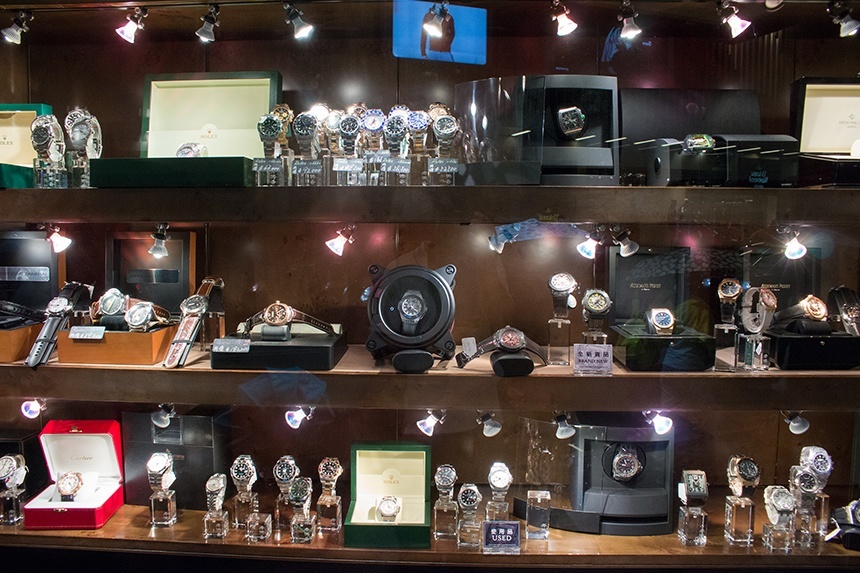
Most watch lovers already know that Asian wrists for the most part prefer smaller diameter watches while Western men today often prefer larger watches. That isn’t news. What is more interesting are the types of watches that are chosen between the two cultures. Unless you are a strict collector, Chinese watch buyers are only interested in “big name” brands with a lot of awareness. The Chinese seem very disinterested in trying out “new brands,” but I suppose the deeper their watch education goes, the more curious about new things they become. With that said, I don’t think anyone with experience in both cultures will disagree with the suggestion that Asian consumers are very interested in popular names.
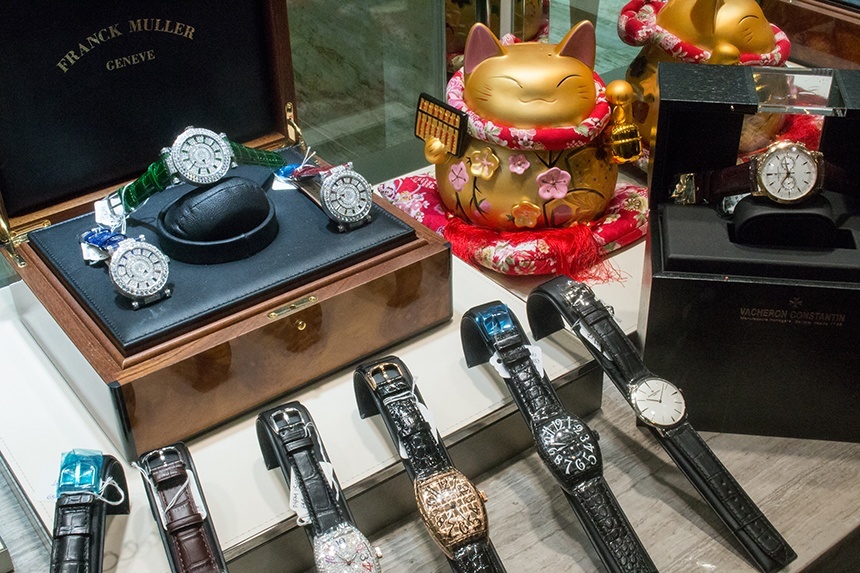
Asian men love diamonds (and gold), where (at least) American men are often told that wearing diamonds is not considered masculine. That also goes for a range of decorative styles that Asian men are far more comfortable and often interested in wearing in comparison to American men. It’s true, American men more often than not seem to be strictly interested in asserting masculinity at every opportunity, while Asian men are known for making more “risky” fashion decisions that in many instances become rather successful.

In Asia, like in other parts of the world, having a nice timepiece is often part of the required attire of any successful (or aspiring to be successful) business person. I’ve been told on more than one occasion that many Asian businessmen will not take someone seriously in a negotiating or deal-making setting if they do not show up with a half-way decent watch. In America, few people would claim that, but I have a feeling more people will suggest a similar “judged by their watch” style situation when it comes to the car people drive. In Asia, men need to handle the fact that they are judged on a variety of levels, and a man’s watch and car can be two huge indicators of his taste, station in life, and future prospects.
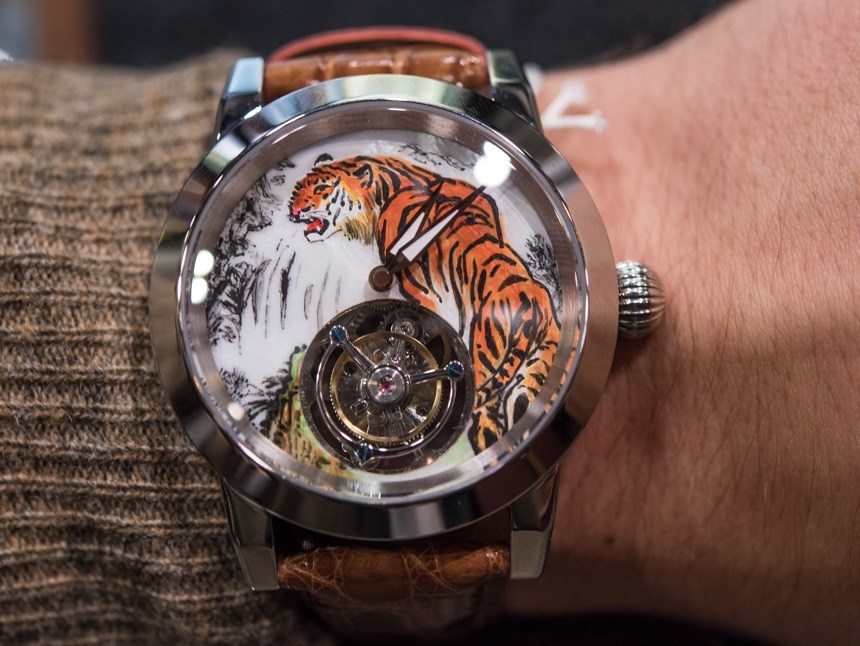
Okay, so why am I harping on all these Western versus Eastern watch comparisons while I began by talking about Asia’s probably-about-to-explode pre-owned watch industry? I mentioned all of the above as a very short framework to suggest what is and isn’t different about the Chinese versus American watch market. Now, over the last few years, and thanks to the Internet, the industry dedicated to buying and selling watches began to boom online – and, slowly but surely, big brands are bound to embrace that idea, as discussed by the Financial Times here, and more recently by us when reporting major shakeups in Richemont top management.
For some people, this represents the “flipping economy,” where watch buying can turn into a temporary infatuation resulting in the purchase of a timepiece often used to wear for a few months or years, only to resell it later at (often, but not all the time) a modest loss, but with enough money remaining to heavily invest in a new timepiece. The Internet has really helped collectors liquidate watches they realized were not being worn with much frequency. The sale of pre-owned watches helped spur the sale of more watches by getting money flowing again. For this reason, the American online watch sales industry is mostly populated not by watch brands officially selling their wares to end-consumers, but rather by various disparate and often experimental retailers, digital auction houses, and crowdfunded watch project budget generators.
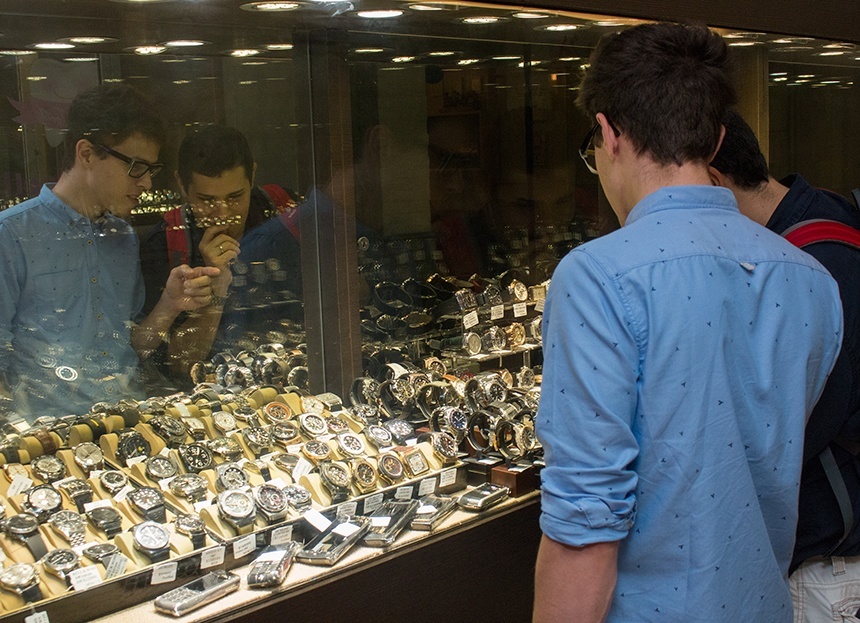
Consumers also love the incredible power of a good deal. If you love a watch but have some patience, you can wait a few months (or years) for many models to be available with discounts or pre-owned at a lower price where someone else eats the depreciation. In many ways, getting pre-owned watches is a lot like getting a pre-owned car. Older models might be appealing, but still, the newer models are going to be the most interesting to watch collectors. This concept brings me back to why people like to buy new, freshly wrapped-in-store watches that may perhaps later end up as pre-owned watches.

With retail prices being intimidating to many consumers and the availability of pre-owned watches becoming more widely distributed to more people around the world, the question in regard to China and Hong Kong, for me, becomes: what is their pre-owned market like now, and what will it be like in the near future.
Consider this: regarding China, watch industry executives and brand CEOs are mostly in agreement that the modern “initial wave of first-time luxury watch buyers” has ended. That means that during China’s more recent bubble an enormous number of luxury watches were purchased, and that volume or speed of sale will not be part of the buying and selling culture there any longer.
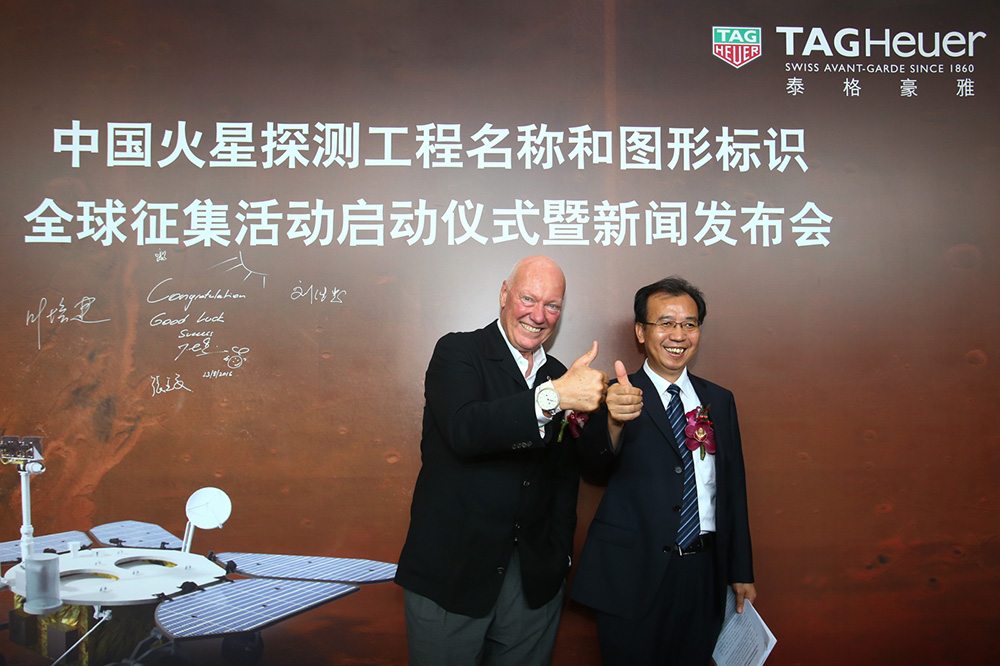
The economics of China and the watch industry need to be understood in detail to appreciate just why China was going crazy buying watches. One of the major reasons was as a gift for others – but what does that even mean? To Westerners, it can be very confusing to imagine that a multi-billion dollar industry for diamond and tourbillon watches as gifts suddenly became sustainable (even for a short period of time) in any market.
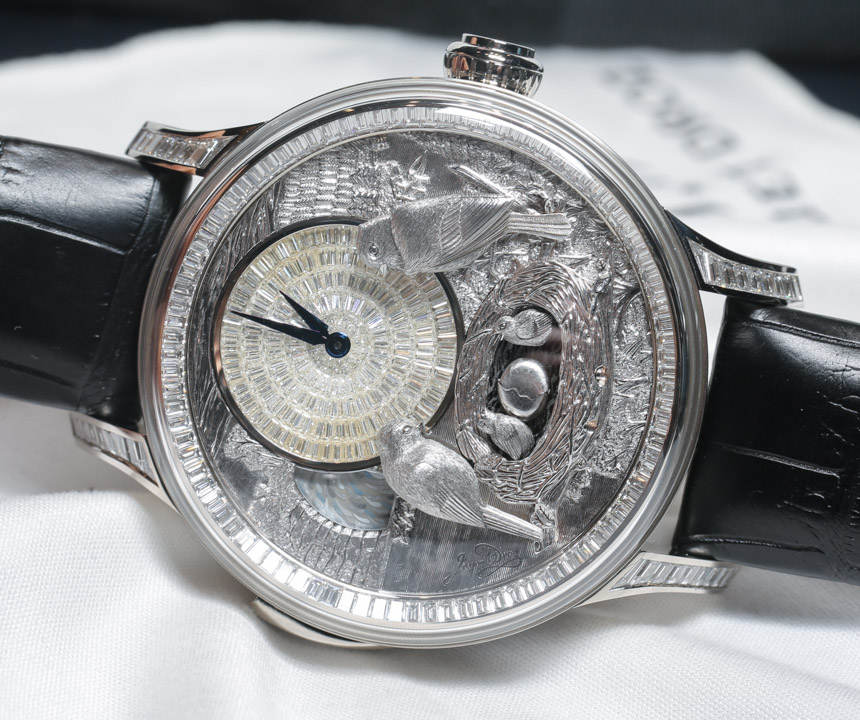
You first need to understand that China has a deep traditional appreciation for watches. That means the culture itself really enjoys the idea of a fine timepiece in the abstract as a gadget, but also as a luxury item which conveys a degree of status. In quickly developing parts of the world like mainland China there is an added benefit to luxury watches in that they also can serve as a vehicle to move around money. If you have $100,000 in cash that you worry about putting in a bank or keeping as cash, one “investment” option is to buy a $100,000 watch that is very portable and can theoretically be resold later to recoup some of that money. So, China by default has a cultural connection with the idea of a nice watch – and that goes into a lot of their culture of celebration and sophistication.

Then, you have the gifting side of Chinese culture that of course varies from place to place. I’m not nearly skilled enough in the various minutiae of Chinese cultures to discuss the role of gifting more from a sociological perspective, but I do know that the process of giving someone a valuable gift in order to secure a favor is very common, and very effective. Yes, one way to refer to such a practice is “bribe,” or “grafting.” This type of “palm greasing” is nevertheless very effective in getting things done in China where especially among local governments corruption in recent years has still been a status quo.
